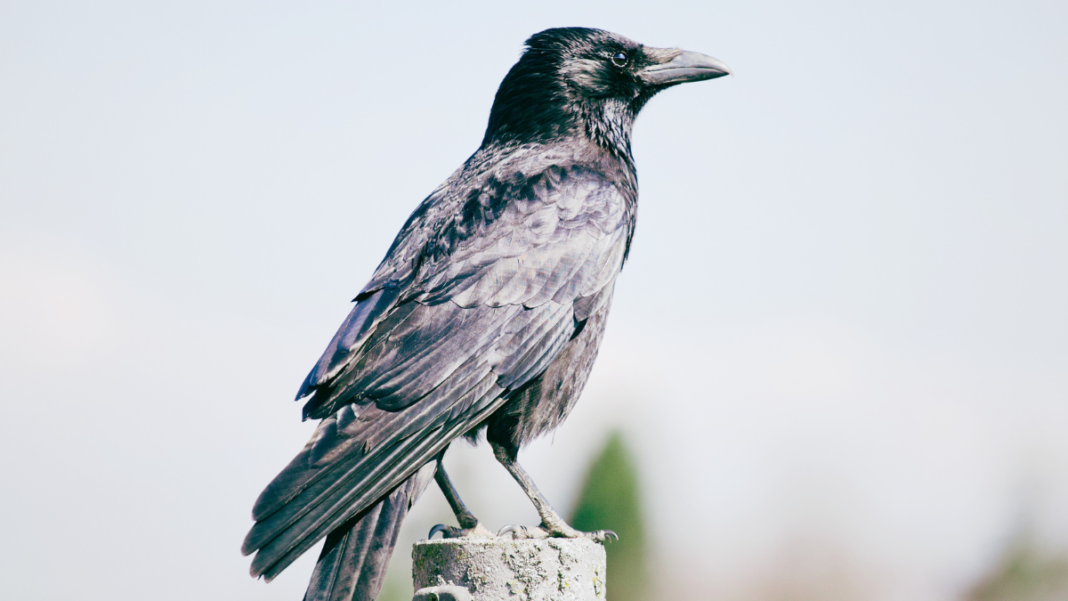Ravens belonging to the genus Corvus are known for their intelligence and complex behaviors. Their glossy black feathers and sharp eyes have made them subjects of myth and legend across various cultures. Despite their intriguing characteristics, keeping a raven as a pet is illegal in many regions. This article, created by HTC News, explains why these legal prohibitions exist and what factors contribute to protecting these remarkable birds.

(more HTC News General Topics)
The Ecological Importance of Ravens
Ravens play a crucial role in their ecosystems. They are scavengers, helping to clean up carrion and thus preventing the spread of disease. Their diet is diverse, including insects, small mammals, and plant material, which helps in pest control and seed dispersal. The ecological balance maintained by ravens is not just important, but absolutely essential for a healthy environment. Removing them from their natural habitats for domestication can disrupt these delicate systems, leading to unforeseen ecological consequences. It’s crucial that we understand and respect their role in our environment.
Conservation Status
One of the primary reasons for the illegality of owning a pet raven is its conservation status. In many regions, ravens are protected under wildlife laws to preserve native species. For instance, in the United States, ravens are protected under the Migratory Bird Treaty Act. This law prohibits capturing, killing, or possessing migratory birds, including ravens, without a special permit. These regulations are in place to ensure the survival and thriving of raven populations, which could be threatened by the illegal pet trade and habitat destruction.
The Challenges of Domesticating Ravens
Ravens are wild animals with complex social structures and behaviors that are difficult to replicate in a domestic setting. They require large territories and have specific dietary and social needs that are challenging to meet in captivity. Ravens are highly intelligent and need constant mental stimulation, which can be hard to provide in a typical home environment. Without proper care, captive ravens can develop behavioral issues, including aggression and self-harm.
Moreover, the domestication of ravens poses ethical concerns. Wild animals are not suited to life in captivity, and attempting to keep them as pets can lead to significant distress for the animal. Ensuring the welfare of ravens involves allowing them to engage in natural behaviors, which is nearly impossible to achieve in a household setting.
Legal Implications
Violating laws that protect ravens can lead to severe legal repercussions. For example, penalties for violating the Migratory Bird Treaty Act in the United States can include hefty fines and imprisonment. These laws are strictly enforced to prevent the exploitation and harm of native bird species. Similar laws exist in other countries, reflecting a global effort to protect ravens and other wildlife from the negative impacts of captivity and exploitation.
Conclusion
In conclusion, the illegality of owning a pet raven is rooted in ecological, conservation, and ethical considerations. Ravens play a vital role in their natural habitats, and their protection is essential for maintaining ecological balance. The challenges of domesticating such intelligent and complex creatures further underscore the importance of keeping them in the wild. Legal frameworks worldwide aim to protect ravens from exploitation and ensure their continued presence in our ecosystems. Understanding these reasons helps foster respect for wildlife laws and the natural world, encouraging us to appreciate ravens from afar rather than attempting to keep them as pets.
FAQs About Owning a Pet Raven
1. Why can’t I keep a raven as a pet?
Owning a raven as a pet is prohibited in many places due to their safeguarded status under various wildlife laws. Ravens are crucial to their ecosystems as scavengers and seed dispersers, and taking them out of their natural habitat can disrupt ecological balance. Furthermore, their complex social and mental needs make them unsuitable for domestication.
2. Are ravens protected under specific laws?
Yes, ravens are protected under several wildlife protection laws. In the United States, for example, ravens are safeguarded by the Migratory Bird Treaty Act, which prohibits the capture, killing, or possession of migratory birds without a special permit. These laws aim to conserve raven populations and their habitats.
3. What are the penalties for keeping a raven illegally?
Penalties for keeping a raven illegally can be severe, including hefty fines and imprisonment. These penalties are enforced to deter the illegal capture and trade of ravens and to ensure their protection. Violating wildlife protection laws can result in both criminal and civil consequences.
4. Can ravens be domesticated successfully?
Ravens are wild animals with highly complex behaviors and social structures, making it very difficult to domesticate them successfully. They require large territories, specific diets, and constant mental stimulation. In captivity, ravens can develop behavioral issues and suffer from stress, leading to a poor quality of life.
5. Are there any legal ways to interact with ravens?
Yes, there are lawful ways to interact with ravens without keeping them as pets. Observing ravens in the wild, participating in bird watching activities, or volunteering with wildlife conservation organizations can provide opportunities to learn about and appreciate these fascinating birds. Additionally, some educational facilities and wildlife rehabilitation centers may have ravens that cannot be released into the wild, offering a chance to see them up close legally.
read more: The World’s Most Corrupt Politicians


